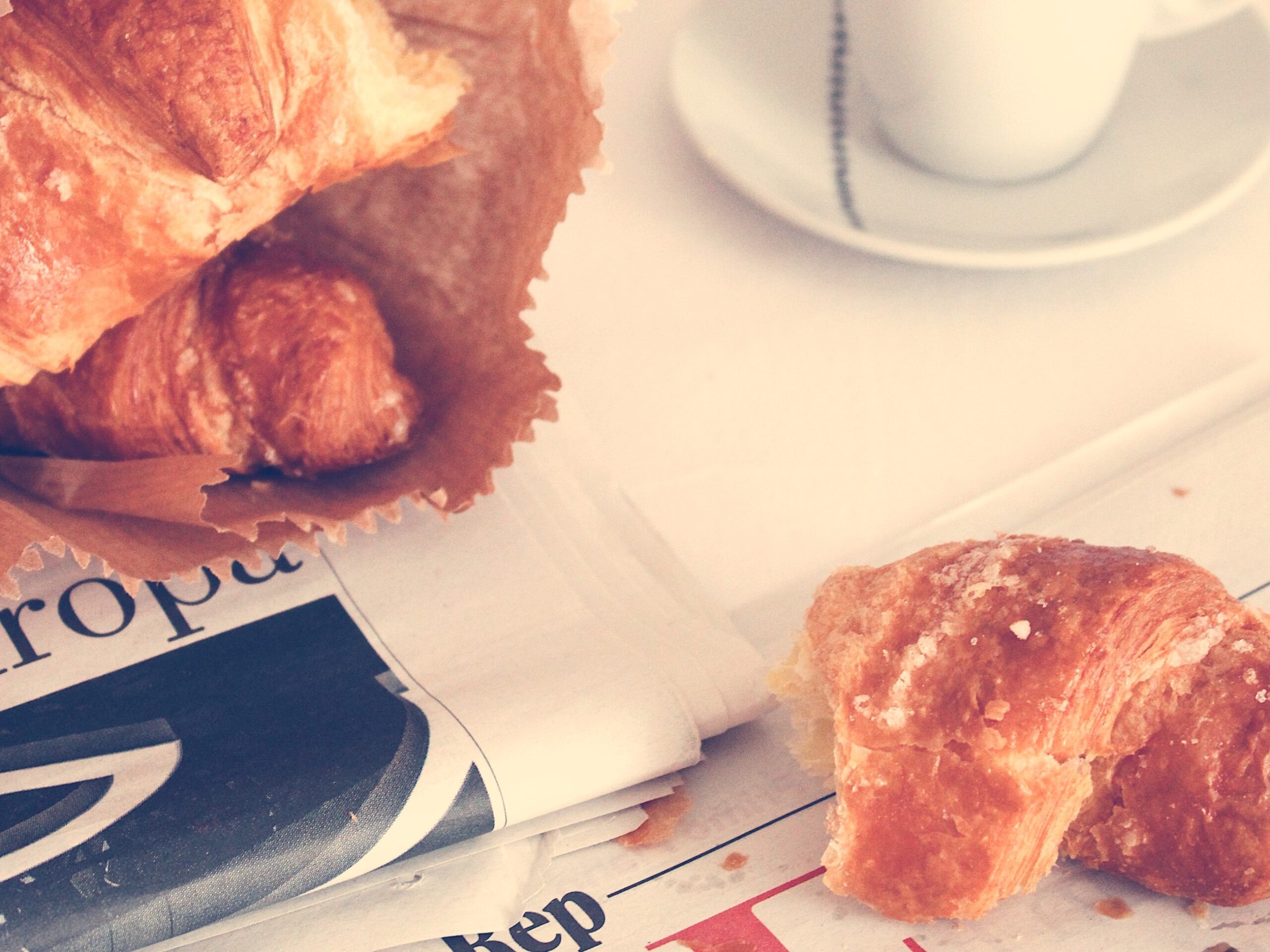A guest post by Scott Bergstrom. Scott is an Edgar Award finalist whose novels The Cruelty and The Greed have been published in 20 languages worldwide. He is a traveler, photographer, writer, and creator of worlds flaky, airy, nearly ethereally light.
Christoph Boniface Zang was a surgeon, and a social climber within Vienna’s growing middle class. When his son, August, was born in 1807, Dr. Zang had a grand vision for the boy’s life—a career in the Austrian military, and perhaps, one day, a noble title. His son would be Baron Zang.
Yes, Dr. Zang thought, he rather liked the sound of that.
But Little August was an unusual boy. He loved science and adventure, true, but he was also into—of all the things a proper Viennese boy of the early 1800s should notbe into—baking.
Oh, how Little August adored going with his father to the coffee houses, where he would talk endlessly of how much he loved all the pastries. True, a proper Viennese gentleman ought to appreciate a flaky Gugelhupfe, a tender, cinnamon-laced Apfelstrudel, a well-balanced chocolate-and-buttercream Dobostorte, a flaky, airy, nearly ethereally light Kipferl.
But Little August went so much further, gushing aloud and at length over the tart counterpoint provided by the red currants, practically writing poems about the delicacy and richness of marzipan.
There was something wrong with the boy.
A Viennese man was, above all, a masculine man, stoic, strong, military-minded. So as soon as Little August wasn’t so little, off his father sent him to military school where he would learn marching, ferocity, manliness. Upon August’s return, Dr. Zang was sure, his son’s effete interests would be no more.
Just as his father wished, August Zang finished school and became a military officer serving with, depending on the source, either an artillery or engineering regiment. But August was not happy in his profession, and decided, much to his father’s dismay, to abandon a career in the military and head off to Paris to seek his fortune.
Once in France, he learned much, and found himself particularly impressed by French newspapers, which wrote in simple, direct language accessible to the common man, and relied on advertising, rather than a high price, for revenue.
When he returned to Vienna years later, August Zang founded Die Presse, which mimicked the French style of journalism. The newspaper made him wealthy, and by the time of his death in 1888, August Zang was a respected presence in Viennese society, albeit still without the noble title his father so desperately wished for him to have.
However, I believe we missed an important chapter in August Zang’s life. We know that he moved to Paris, and learned much in Paris, but not actually what he did in Paris.
Remember how the young August Zang was interested in science as well as baking? Well, he brought the idea of steam baking with him to Paris, where he opened Boulangerie Viennoise at 92 rue de Richelieu. By introducing steam into the ovens in which breads and pastries were baked, he was able to achieve a fine, golden crust on the exterior of the delicacies baked there.
Nearly overnight, Boulangerie Viennoise became the most talked-about bakery in the city. All of Paris streamed through the doors at 92 rue de Richelieu to try August Zang’s innovative, Viennese-style breads and pastries. Parisians loved them all, but it was one pastry in particular that caught their collective imagination: August Zang’s flaky, ethereally light Kipferl, which consisted of countless layers of yeasty dough layered with butter, then, just before baking, bent into the shape of a crescent.
